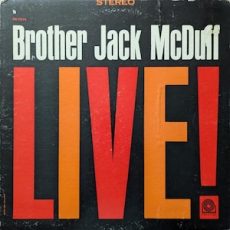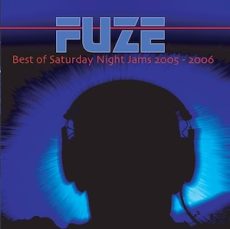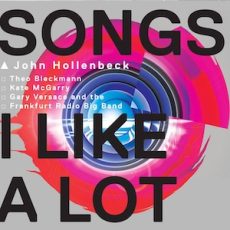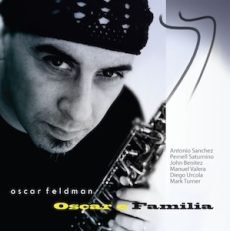
Requisites
Live! ~ Brother Jack McDuff | By Eddie Carter
Three cherished family members inspired this morning’s discussion. My mom, Merlyn Carter, introduced my sister and me to Brother Jack McDuff during our Sunday dinners when we were younger; my uncles, Benjamin and Emmanuel Curry, often featured this album at their weekend jazz gatherings. Offered now for your consideration is his 1963 release and first concert performance, Live! (Prestige PRLP 7274/PRST 7274). (Prestige PRLP 7274/PRST 7274). This album captures the organist igniting a lively crowd at The Front Room in Newark, New Jersey, joined by his stellar quartet: Red Holloway on flute (track B1) and tenor sax (tracks A1 to A3, B2, B3), George Benson on guitar, and Joe Dukes on drums. My copy of the album is the 1964 U.S. stereo reissue.
The announcer’s introduction gets the set off to a roaring start with Rock Candy by Jack McDuff. The quartet’s infectiously spirited theme segues into Red’s vigorous opening statement. A swinging interlude is succeeded by George’s lively solo ahead of the foursome’s second interlude. Brother Jack states his case in fine form before the theme’s closing chorus, and Jack speaks to the crowd. The tempo eases as the foursome takes on George and Ira Gershwin’s It Ain’t Necessarily So. Benson and Dukes’ soulful warmth paves the way for McDuff’s down-home melody that whets the appetite for more. George pays his respects in the opening solo, then Red compliments him with a bluesy, slow-cooked groove, preceding McDuff’s theme reprise fading softly into Jack’s introduction of the next tune.
The group ushers us into Jack McDuff’s Sanctified Samba, launching the soulful gathering with an irresistible, bossa-nova tinged beat that calls the congregation to worship. George begins with a lively, melodic progression that builds to a satisfying climax. Jack delivers a stream of inventive ideas with characteristic ease next. Red wraps up the readings, blending bluesy flair with smooth, expressive lines before the group unites for a rousing conclusion. Side Two starts with Whistle While You Work, by Frank Churchill and Larry Morey from Disney’s “Snow White and the Seven Dwarfs.” Red opens the whimsical melody on flute, then steps aside for McDuff to take two happy solos with Benson’s cheery statement sandwiched in between them, leading back to the ending theme.
Jack shares the story behind his blues, A Real Good’un, and then the organist’s introduction segues into the quartet’s home cooking during the melody. Benson comes to the table first, serving up a platter of appetizing notes. After the first of several short interludes, Holloway brings the musical equivalent of red beans and rice to the table. McDuff adds a generous helping of fried chicken and mac and cheese before the group wraps up the song on a tasty note. The set concludes with Undecided, by Sid Robin and Charlie Shavers. The ensemble’s brisk introduction and catchy melody open the door for McDuff to deliver a swinging solo. Holloway maintains the momentum in a peppy interpretation. Benson plays with energetic finesse, then Dukes has the last word preceding the spirited closing chorus.
>Produced by Lew Futterman and Peter Paul, this live session captivates listeners from the very first note. Though the identity of the recording engineer remains a mystery, the album’s sound places listeners right in The Front Room, giving them the sense of being part of the lively crowd. The energy of the performances is infectious, and it’s nearly impossible not to snap your fingers, tap your feet or get up and dance along. Throughout his career, Jack McDuff masterfully fused hard bop, R&B, and soul jazz, drawing out the best from his fellow musicians at every turn. If you’re a jazz organ fan seeking an album that’s vibrant and uplifting, Live! by Brother Jack McDuff is a top recommendation for your library. It’s the perfect soundtrack to relax after a busy day or week, and is guaranteed to brighten your mood!
~ It Ain’t Necessarily So, Whistle While You Work – Source: Wikipedia.org
© 2025 by Edward Thomas Carter
More Posts: choice,classic,collectible,collector,history,instrumental,jazz,music,organ

Daily Dose Of Jazz…
Michel Benebig was born in Nouméa, New Calédonia, South-Pacific on June 27, 1964. He started playing bass guitar, accordion and keyboards in dancing bands at age 11. He studied classical piano from 16 to 26 yers old, at the Noumea Music-School, then in France at C.N.R de Besancon from 1990 to 1992.
Michel started playing the Hammond B3 organ in 1992. As a self-taught musician he taught himself how to play foot-pedal bass and jazz organ techniques. Meeting Jimmy McGriff in Atlanta, Georgia in 1995, Jimmy Smith in Oakland, California and Rhoda Scott in Nouméa the following year.
Michel has performed with guitarist Bruce Forman, drummer Lewis Nash, organist Tony Monaco, guitarist Randy Johnston and many more.
Organist, composer and bandleader Michel Benebig who is the founder of the Association des Musiciens de Jazz & Blues pour les Echanges et la Création Artistique, Artistic Director of YAARI, continues to perform and tour.
More Posts: bandleader,history,instrumental,jazz,music,organ

Daily Dose Of Jazz…
Joe Purrenhage was born on June 21, 1966 and grew up outside the Detroit, Michigan area where he picked up an interest in classic rock, jazz and blues. His formal training was minimal with only a couple of years of piano lessons at a young age and percussion in the high school band. However, he started to teach himself the bass, guitar, keyboards and synthesizer programming.
Enlisting in the Air Force he met many musicians with different infuences and styles. After the Air Force, Joe focused on starting an all original band with some friends and had some limited success with a pop/rock band called Earthbound. In the early 1990s Joe met drummer Marcus McGlown and a musical friendship was started that continues today.
Marcus and Joe started something that had a little more of the ’70s fusion flavor to it. Calling guitarist Craig Wisper they sowed the seeds to the modern fusion group Fuze. Their improvisational approach to music was heard at the Saturday Night Jam where all boundries were dropped for a unique blend of rock and jazz.
By 2000, Doug Nolls joined the band and after building a studio released their debut project across social media garnering 100,00 plus plays over three years.
Joe Purrenhage and Fuze continue to create new music and self-produces their works to keep the fusion spirit alive.
More Posts: bandleader,guitar,history,instrumental,jazz,keyboard,music

Daily Dose Of Jazz…
John Hollenbeck was born June 19, 1968 in Binghamton, New York and earned degrees in percussion and jazz composition from the Eastman School of Music. He moved to New York City in the early 1990s. He has worked with Bob Brookmeyer, Fred Hersch, Tony Malaby, the Vanguard Jazz Orchestra, Kenny Wheeler, Pablo Ziegler, and Meredith Monk.
In 1998, he composed The Shape of Spirit, a piece for wind ensemble on Mons Records. The following year he composed Processional and Desiderata for wind ensemble and orator. This composition, written for and featuring the voice and trombone of Bob Brookmeyer, was released on Challenge Records in 2001.
Hollenbeck went on to receive several commissions from the Bamberg Choir and the Windsbacher Knabenchor in Germany, Bang on a Can, the People’s Commissioning Fund, the IAJE Gil Evans Fellowship, and in addition he composed and performed the percussion score to the following Meredith Monk works: Magic Frequencies, Mercy and The Impermanence Project.
His 2000 debut release Static Still with Theo Bleckmanne began his recording as a leader and in 2001 his sophomore project No Images landed on Gary Giddins’ Village Voice Top Ten list. He has gone on to record nine more albums to date as a leader and nine albums with the Claudia Quintet.
Drummer John Hollenbeck, who was an eleven year professor of jazz drums and improvisation at the Jazz Institute Berlin and in 2015 joined the faculty of Schulich School of Music, continues to perform.
More Posts: bandleader,drums,educator,history,instrumental,jazz,music

Daily Dose Of Jazz…
Oscar Feldman was born on June 12, 1961 in Cordoba, Argentina listening to his father’s jazz collection. He attended Conservatorio Provincial de Musica and was soon part of the prominent music scene in his hometown, becoming a founding member of acclaimed band Los Musicos del Centro.
Beginning in 1979 when he was 19 Oscar accepted an invitation to join bandoneonist Hermeto Pascoal and Dino Saluzzi to join his group. Moving to Buenos Aires, Argentina his career took off and he became a sought after studio musician. He recorded more than 40 albums as a sideman and toured with Argentina’s most prominent artists. Winning the Outstanding Performance Award as the Best Soloist in Fusion in 1986, he went on to procure the Achievement Scholarship Award from Berklee College of Music and graduated cum laude in 1995 with a Major in Professional Music.
Realizing he could bridge two worlds he joined Dizzy Gillespie’s United Nations Orchestra conducted by Paquito D’ Rivera. Moving to New York City his reputation grew as a versatile musician, and worked with Al Di Meola, Eumir Deodato, Jeff Tain Watts, Avantango, Alex Acuna, Bebo Valdes and His All Star Latin Jazz Band. He toured and performed across the United States, Europe and Africa.
As a leader Feldman has led numerous tours Horacio Negro Hernandez, Alex Acuna, Dave Samuels, Otmaro Ruiz and Tom Kennedy. As an educator he is currently on the faculty at the New York Jazz Academy, has taught workshops and clinics at Berklee College of Music in Boston, Massachusetts. He leads his own music jam classes weekly in New York and has written an article for Down Beat Magazine.
By the end of the 1990’s he recorded his debut as a leader El Angel on the Songosaurus record label. For his sophmore ten track album Oscar e Familia was released in 2009 on Sunnyside, he put together a Pan-American cast of Mexican drummer Antonio Sanchez, Cuban pianist Manuel Valera, Puerto Rican bassist John Benitez and Curacao percussion master Pernell Saturnino.
Alto saxophonist and composer Oscar Feldman. known for his splendid tonalities and melodically outstanding charts, continues to transcend his musical horizons.
More Posts: bandleader,composer,history,instrumental,jazz,music,saxophone


